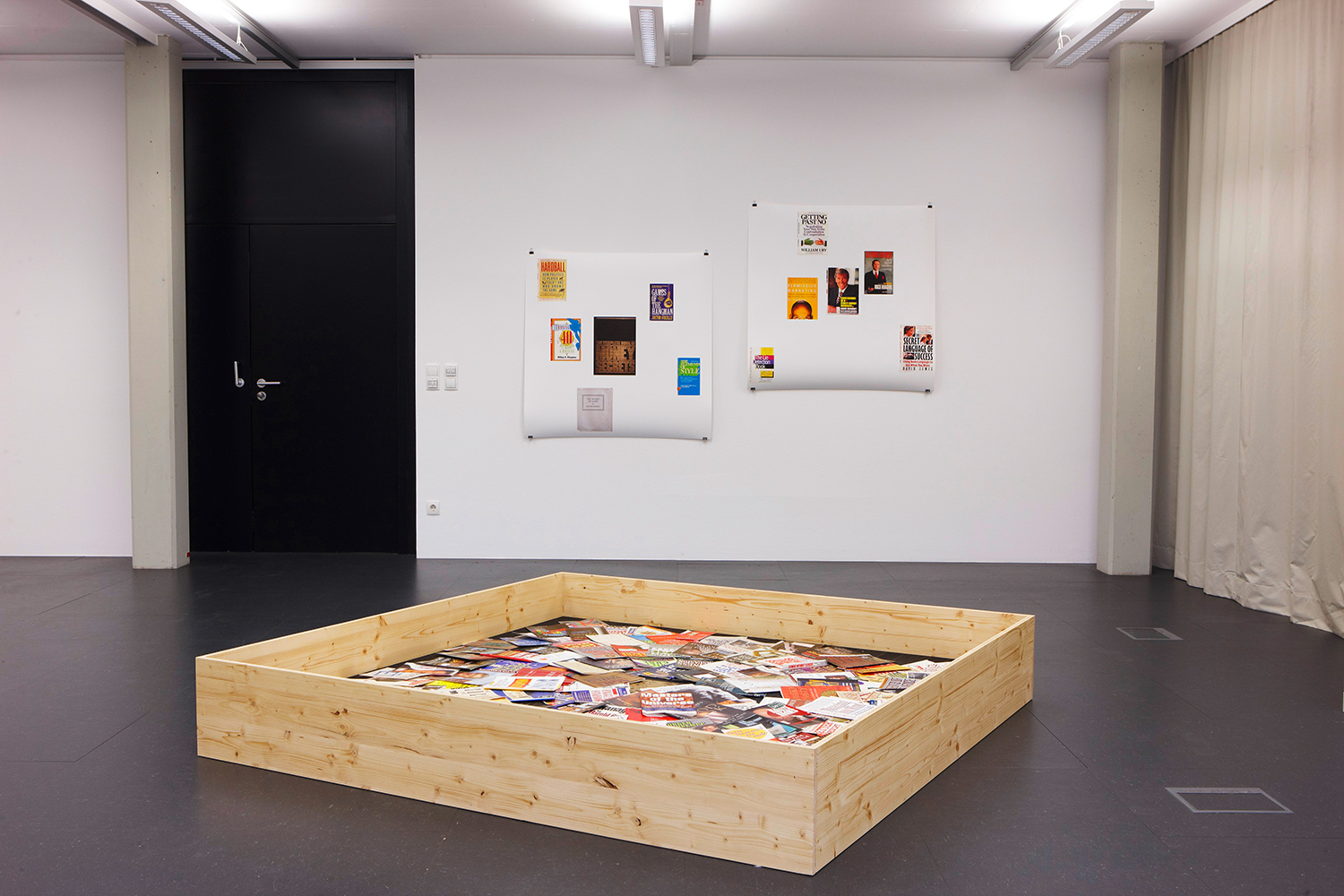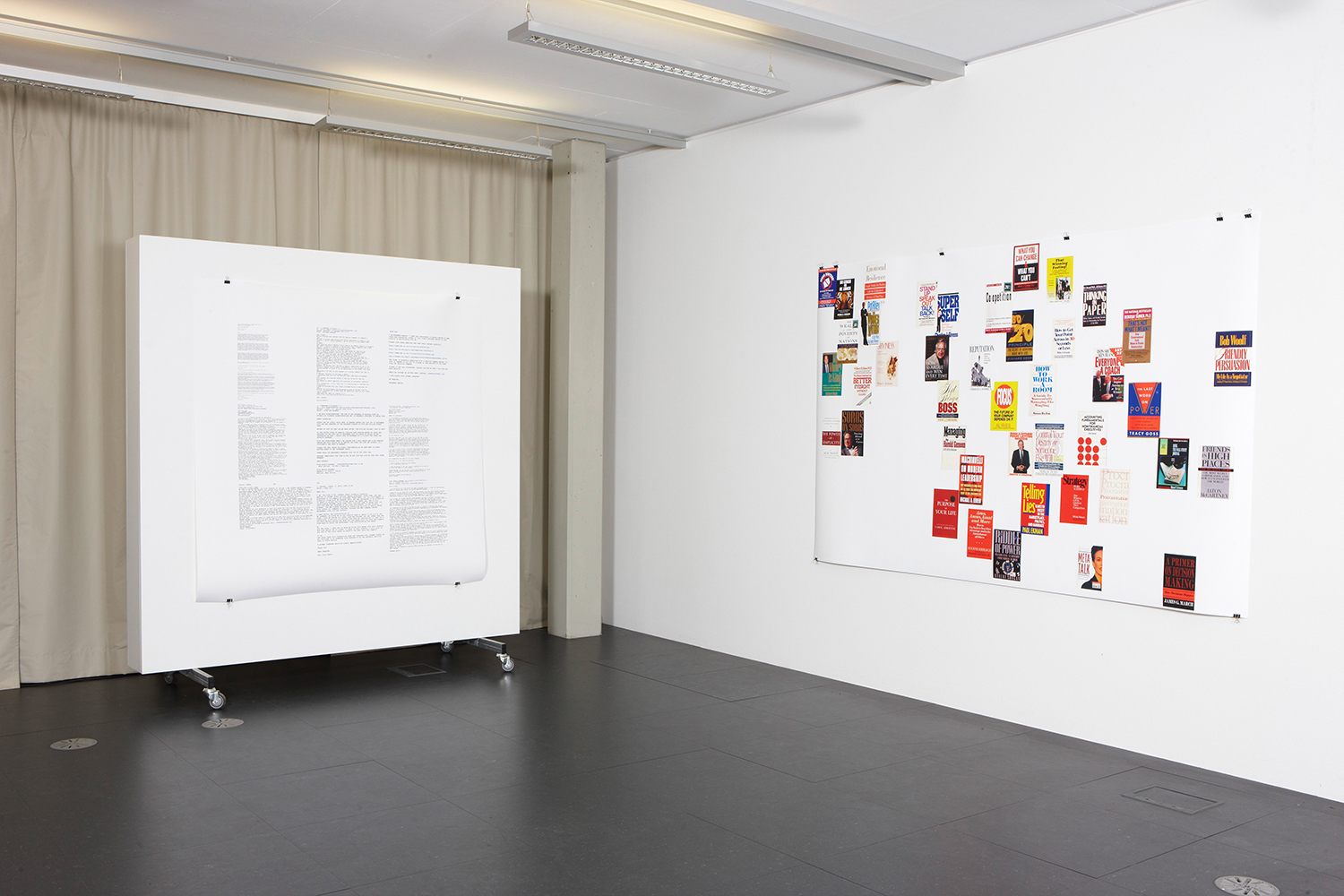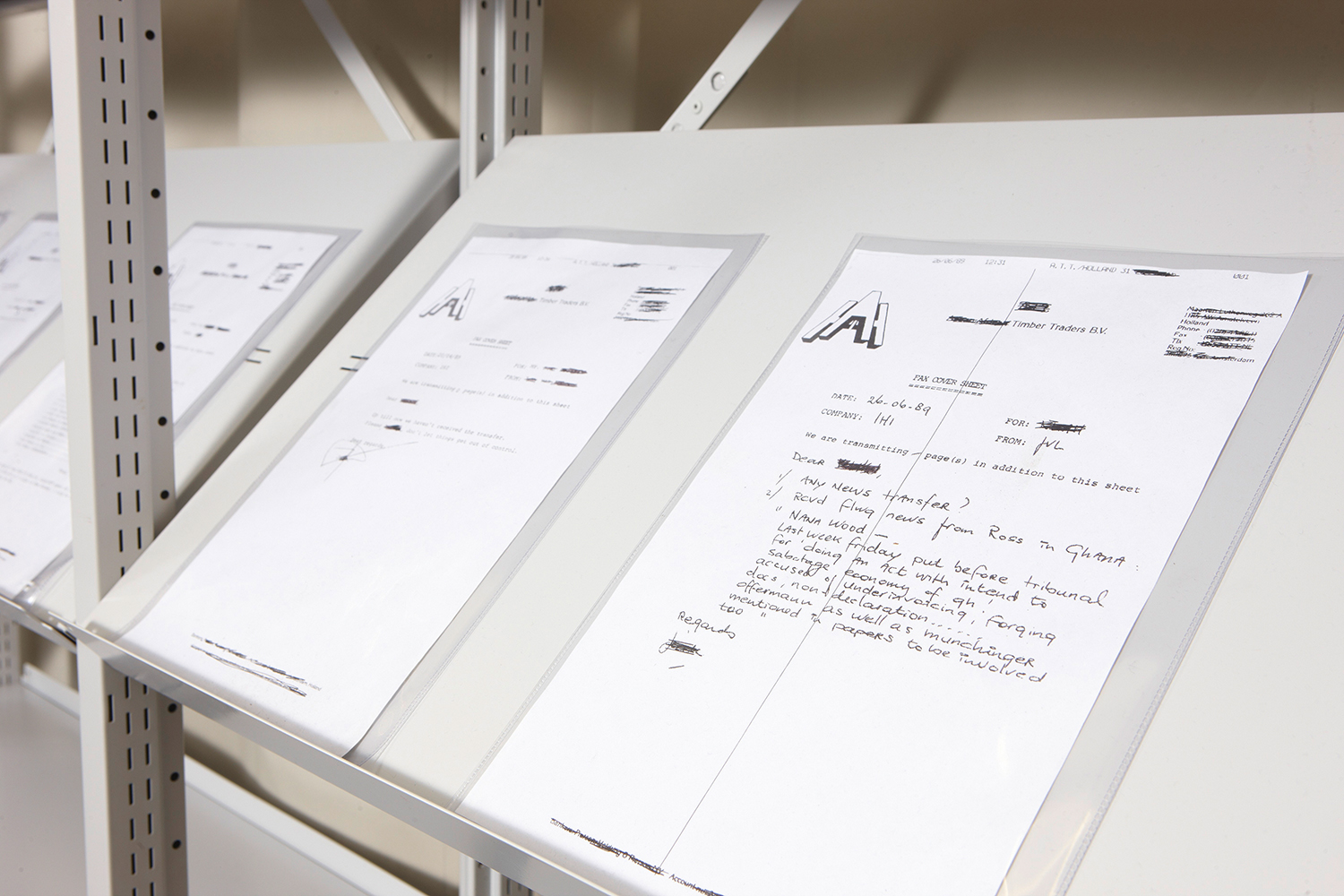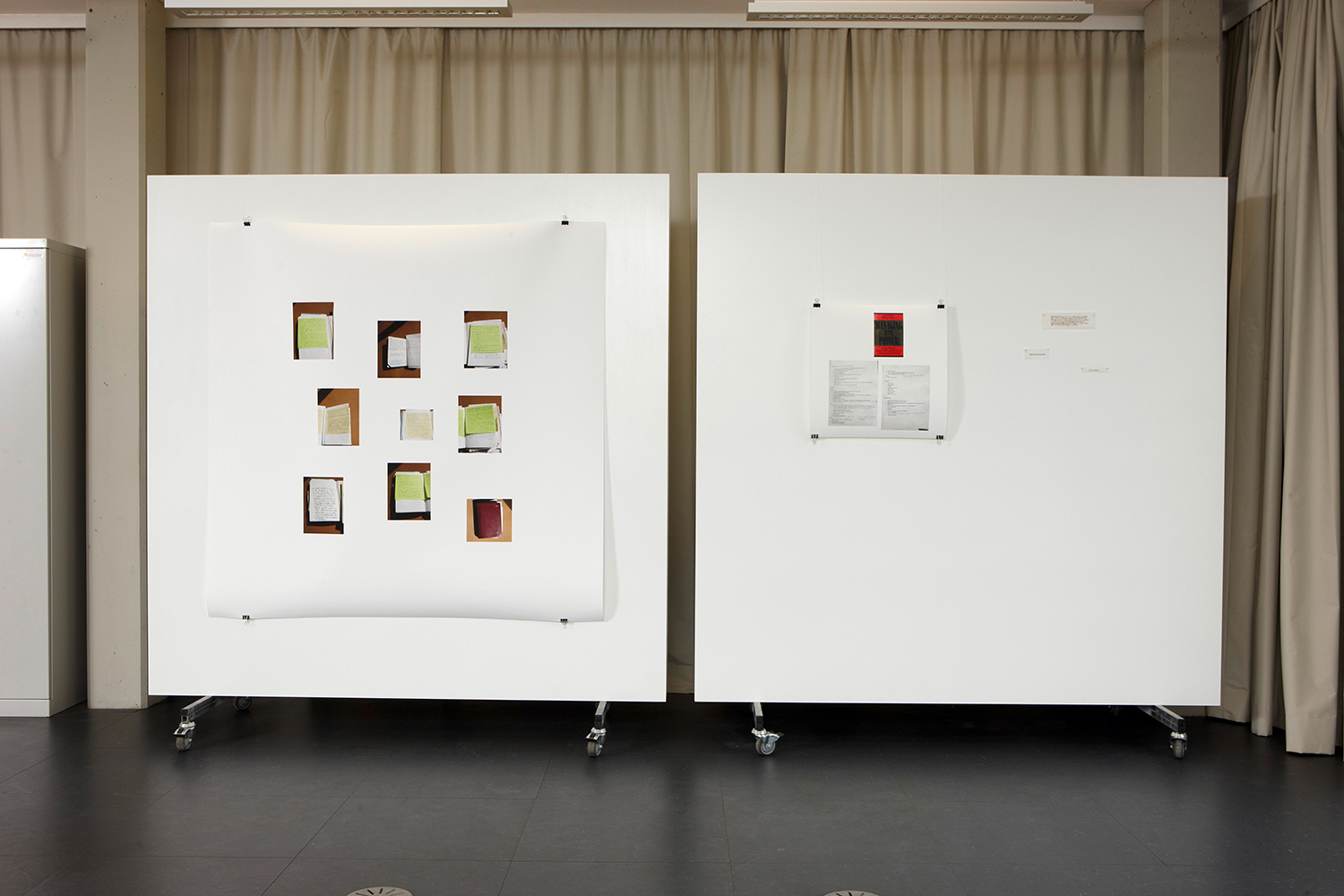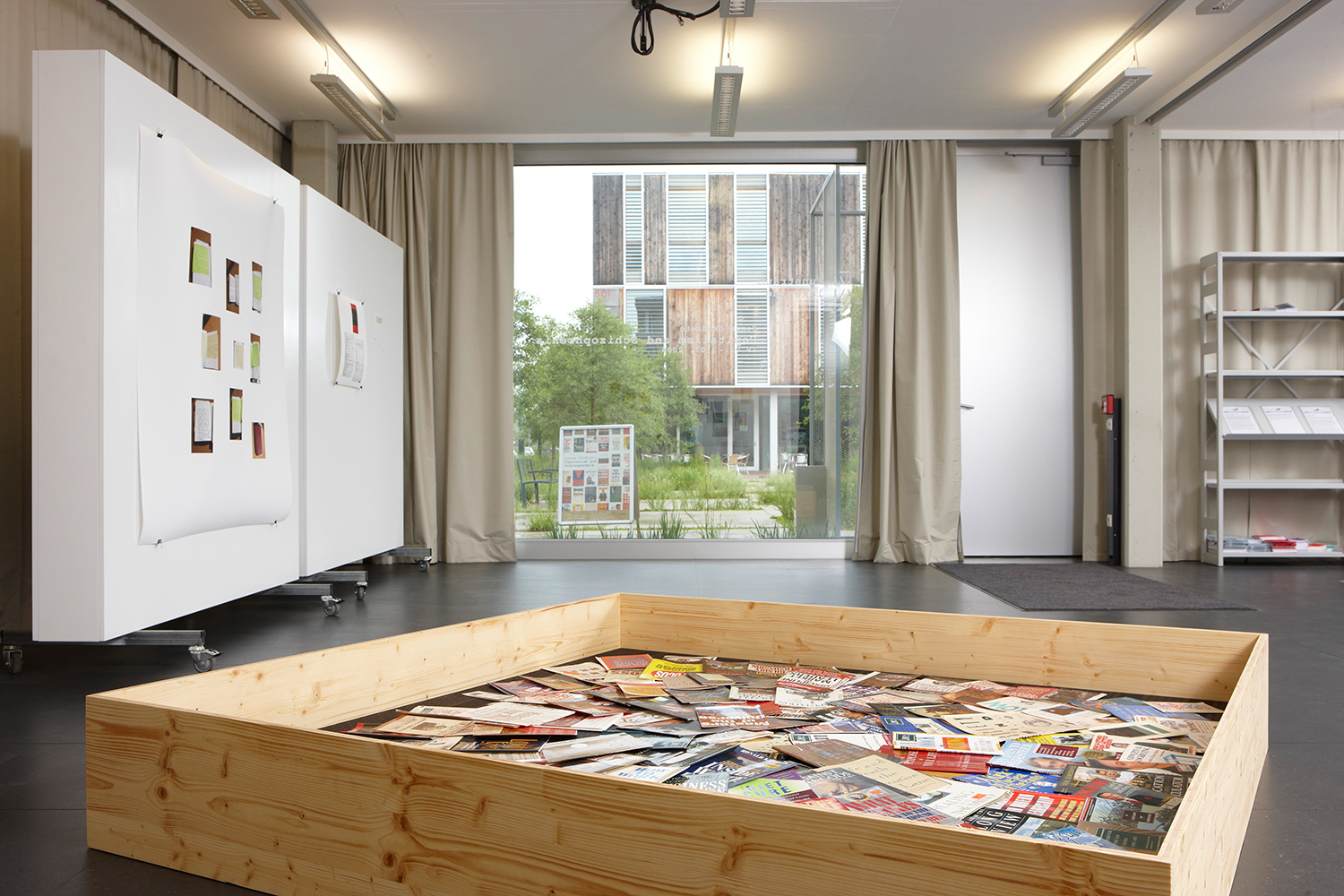Opening , March 18, 2009, 6.30 pm
Exhibition, March 19 – July 3, 2009
The city of Fribourg is a small, picturesque university town just to the north of Geneva. Its gently fading economy has been in need of a lift for some years. In order to address this problem, the city council selectively invited prominent businessmen to become residents of the town; additional sweeteners were laid on in the form of large bank loans and tax breaks. One such man was forced to leave in a great hurry, having been caught in dishonest dealings by the authorities. “Capitalism and Schizophrenia” is an artwork centered around the “Library,”—a floor-based vitrine that holds fragments of an abandoned archive: the book sleeves of roughly two hundred business school self-help books. In addition, the audience is presented with phony business contracts, diary entries and correspondence, acquired from the irate landlord of a Swiss con-artist who resided in Fribourg as an invitee of the City Council.
His abandoned apartment contained documents and letters detailing his activities. He has been missing since 2002, when he was forced into hiding in order to escape arrest by INTERPOL. This artwork is a discussion of objects and commodities that do not exist, in the form of misappropriated World Bank loans, phantom development projects, and the presumed absence of social and moral values in conjunction with generating exchange value. Money itself is, as Michael Taussig suggests, a kind of “phantom object.“* But what, and where, are the material memories of these missing objects? How do we trace a system that is global in scope and operates through the abstract belief structure of stocks and shares, deals and contracts, wherein confidence and the signification of power are in themselves the strongest commodities? (S. O.)
* Michael Taussig, The Devil and Commodity Fetishism in South America, p. 4, Chapel Hill Press (1994).
Senam Okudzeto (b. 1972 in the USA) lives and works in Basel, Accra, London, New York.
Curated by Christian Kravagna and Hedwig Saxenhuber.
